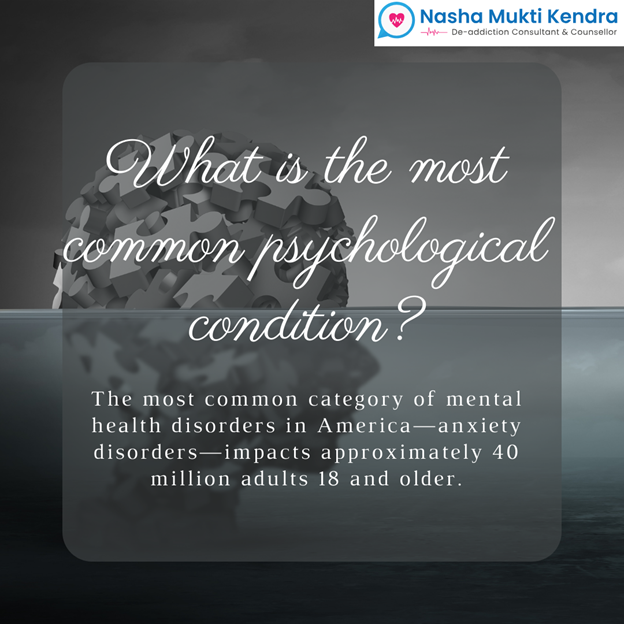In today’s fast-paced world, where stress and anxiety often seem like unwelcome companions, understanding psychological conditions is more crucial than ever before. These conditions, often referred to as psychological issues or psychological disorders, encompass a wide range of mental health challenges that affect millions of people worldwide. In this comprehensive article, we will delve into the realm of psychological conditions, explore different psychological disorders, and provide examples to shed light on the complex nature of these issues.
The Landscape of Psychological Conditions
Psychological conditions, or psychological disorders, are characterized by disturbances in thought patterns, emotions, behavior, or a combination of these elements. These conditions can significantly impact an individual’s daily life, relationships, and overall well-being. They are often classified into various categories based on their symptoms and characteristics.
Different Psychological Disorders
1. Anxiety Disorders
Anxiety disorders are among the most common psychological conditions. They encompass a range of disorders, including:
- Generalized Anxiety Disorder (GAD): People with GAD experience excessive and uncontrollable worry and fear about various aspects of life, often with physical symptoms like restlessness and muscle tension.
- Panic Disorder: Characterized by sudden and intense episodes of fear, panic disorder can lead to physical symptoms such as rapid heartbeat and shortness of breath.
- Social Anxiety Disorder: This disorder involves an intense fear of social situations, often leading to avoidance of social interactions.
2. Mood Disorders
Mood disorders primarily affect a person’s emotional state and include:
- Depression (Major Depressive Disorder): Depression leads to persistent sadness, loss of interest in activities, changes in appetite, and sleep disturbances.
- Bipolar Disorder: Bipolar disorder involves extreme mood swings, cycling between periods of depression and manic episodes marked by high energy and impulsivity.
3. Personality Disorders
Personality disorders affect an individual’s thoughts, behavior, and interpersonal relationships. Examples include:
- Borderline Personality Disorder: People with this disorder often have unstable relationships, self-image, and emotions, and may engage in impulsive behaviors.
- Antisocial Personality Disorder: Individuals with this disorder typically exhibit a disregard for the rights of others, lack empathy, and may engage in manipulative or criminal behavior.
4. Eating Disorders
Eating disorders are characterized by abnormal eating habits and include:
- Anorexia Nervosa: Anorexia involves extreme dietary restrictions, a fear of gaining weight, and a distorted body image.
- Bulimia Nervosa: Bulimia is characterized by binge eating followed by purging behaviors like vomiting or excessive exercise.
5. Obsessive-Compulsive and Related Disorders
- Obsessive-Compulsive Disorder (OCD): OCD entails persistent and distressing obsessions (intrusive thoughts) and compulsions (repetitive behaviors) aimed at reducing anxiety.
- Hoarding Disorder: Hoarding disorder involves the excessive acquisition of items and an inability to discard them, often leading to cluttered living spaces.
6. Post-Traumatic Stress Disorder (PTSD)
PTSD develops after experiencing or witnessing a traumatic event. It can lead to flashbacks, nightmares, and severe anxiety.
Examples of Psychological Disorders
To better understand the nature and impact of psychological conditions, let’s delve into a few specific examples:
Example 1: Depression
Depression is a widespread psychological disorder characterized by persistent feelings of sadness, hopelessness, and a loss of interest or pleasure in activities. It affects a person’s daily functioning, including their ability to work, study, eat, and enjoy life. Physical symptoms like changes in appetite, sleep disturbances, and fatigue often accompany depression.
Treatment: Depression can be effectively treated with psychotherapy (talk therapy), medication, or a combination of both. Lifestyle changes, such as regular exercise, a balanced diet, and social support, can also aid recovery.
Example 2: Schizophrenia
Schizophrenia is a severe and chronic psychological disorder that affects a person’s thinking, emotions, and behavior. Common symptoms include hallucinations (false sensory perceptions), delusions (false beliefs), disorganized thinking, and reduced emotional expression.
Treatment: Schizophrenia often requires long-term treatment, including antipsychotic medications, psychotherapy, and support from mental health professionals and family.
Example 3: PTSD
Post-Traumatic Stress Disorder (PTSD) can develop after experiencing or witnessing a traumatic event, such as combat, natural disasters, or physical assault. Symptoms include flashbacks, nightmares, severe anxiety, and emotional detachment.
Treatment: PTSD is treated with psychotherapy, particularly cognitive-behavioral therapy (CBT), and sometimes medication. Support from friends and family can also be instrumental in recovery.
The Stigma Surrounding Psychological Conditions
Despite significant progress in understanding and treating psychological disorders, stigma remains a considerable barrier to seeking help. People with these conditions often face discrimination, judgment, and misunderstanding from society, which can hinder their recovery and well-being.
It’s crucial to dispel myths and misconceptions about psychological conditions and promote empathy and understanding. Mental health awareness campaigns and open conversations about mental health can contribute to reducing stigma and encouraging individuals to seek the help they need.
Seeking Help and Finding Hope
If you or someone you know is struggling with a psychological condition, it’s essential to reach out for help. And Nasha Mukti Kendra in dehardun is the best place where you can find help suitable to your condition. Our mental health professionals, including psychiatrists, psychologists, and therapists, are trained to diagnose and treat these conditions. Additionally, our support groups can also provide valuable assistance and guidance.
Remember that recovery is possible, and with us and our support, individuals with psychological conditions can lead fulfilling lives. Mental health is an essential aspect of overall well-being, and addressing psychological issues is a vital step toward a healthier and happier future.
